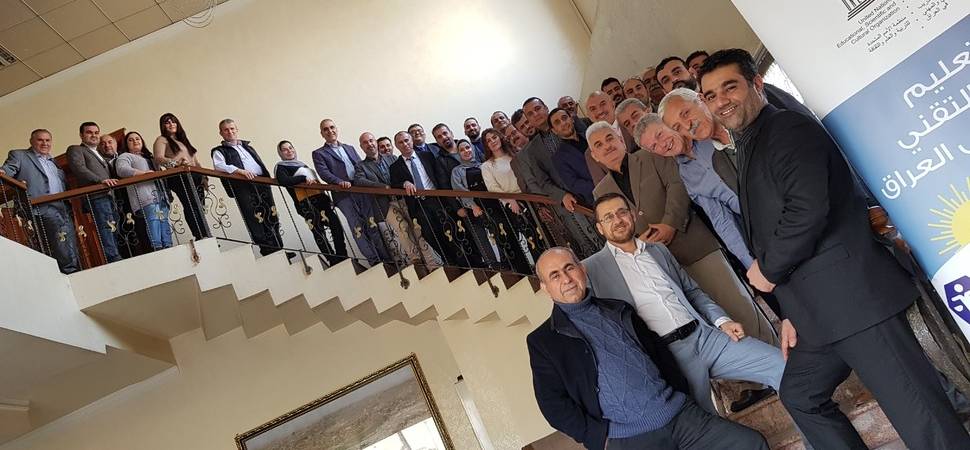
"Its not every day that you get a phone call from the UN asking for your expertise to help."
Paul Jorgensen
The United Nations (UN) has turned to a Manchester-based expert in operational management to help the Iraqi government tackle the country’s skills gap.
Paul Jorgensen, Senior Partner at logistics consultancy Strategic Analytics Team, was asked to deliver workshops at the launch of UNESCO’s Report of Iraq Labour Market Assessment.
The report is the result of three years’ research by UNESCO – which stands for The United Nations Educational, Scientific and Cultural Organization - into Iraq’s skills gaps, labour market and sector skills across the transport, logistics and agriculture sectors, and identifies where there are training needs.
Paul’s Sector Skills Analysis workshops were designed to highlight UNESCO’s findings and work with key stakeholders, including ministry officials, training organisations and industry representatives, to plan a way forward in tackling the skills shortage, including an overhaul of Iraq’s technical and vocational education and training (TVET) system.
The workshops, together with Labour Market Assessment, are a key component of the UNESCO Iraq TVET Reform programme, funded by the EU, in partnership with the governments of Iraq and the Kurdistan region. Paul was recommended to UNESCO following some work that he and his business, Strategic Analytics Team, had previously undertaken in Iraq.
Paul said: “It’s not every day that you get a phone call from the UN asking for your expertise to help and of course we were happy to provide our expertise and knowledge to support this valuable piece of educational and skills reform in Iraq.
“I’ve made a series of recommendations, based on my findings during the workshops. There is huge potential for Iraq to grow and fulfilling the skills gaps needs will take time, yet it is critical for Iraq’s future in both the region and the world. To do this, the UNESCO TVET program is the first stage in being able to reform the education system and begin to provide a skilled workforce to the business community.”
Paul’s recommendations included reforms or changes to the following areas:
· More government support for start-up businesses and entrepreneurs
· Generating better employment opportunities for women and young people aged 15 – 25
· A review of course and curriculum content in schools, colleges and universities
· Encouraging the development of soft skills within students, with less emphasis on ‘tick box’ items such as certificates of attendance.
“There are many young people currently leaving universities or colleges and then struggling to get employment in their chosen field in many instances because of oversupply, yet in other areas there is huge employment opportunities but a lack of skilled qualified workers and this is the focus of the work we have been undertaking,” added Paul.
“It makes me and all of our team extremely proud to be able to support the development of this work and, ultimately, the development of Iraq as an economic force in the Middle East and beyond.”
Mr Ali Tarboush, spokesperson for UNESCO, added: The Labour Market Assessment and Sector Skills Analysis project was a key component of the UNESCO Iraq TVET Reform programme, funded by the EU, in partnership with the governments of Iraq and the Kurdistan Region.
“The main aim of the project was to supply comprehensive and current information about the skills provided by the TVET providers in relation to the skills actually needed and valued by the seven selected industry sectors - wholesale, retail and vehicle maintenance; transport and storage; manufacture; ICT; construction; hospitality; and agriculture. The workshop provided an extensive overview of various Labour Market business models, challenges, gaps, opportunities and practical examples.
“This workshop could bring benefits for individuals, businesses and society as a whole and provides the information needed for planning and prioritising and resourcing the further development of the technical and vocational education and training system. It also provides a model for updating labour market information to inform planning and decision making in the future.”


